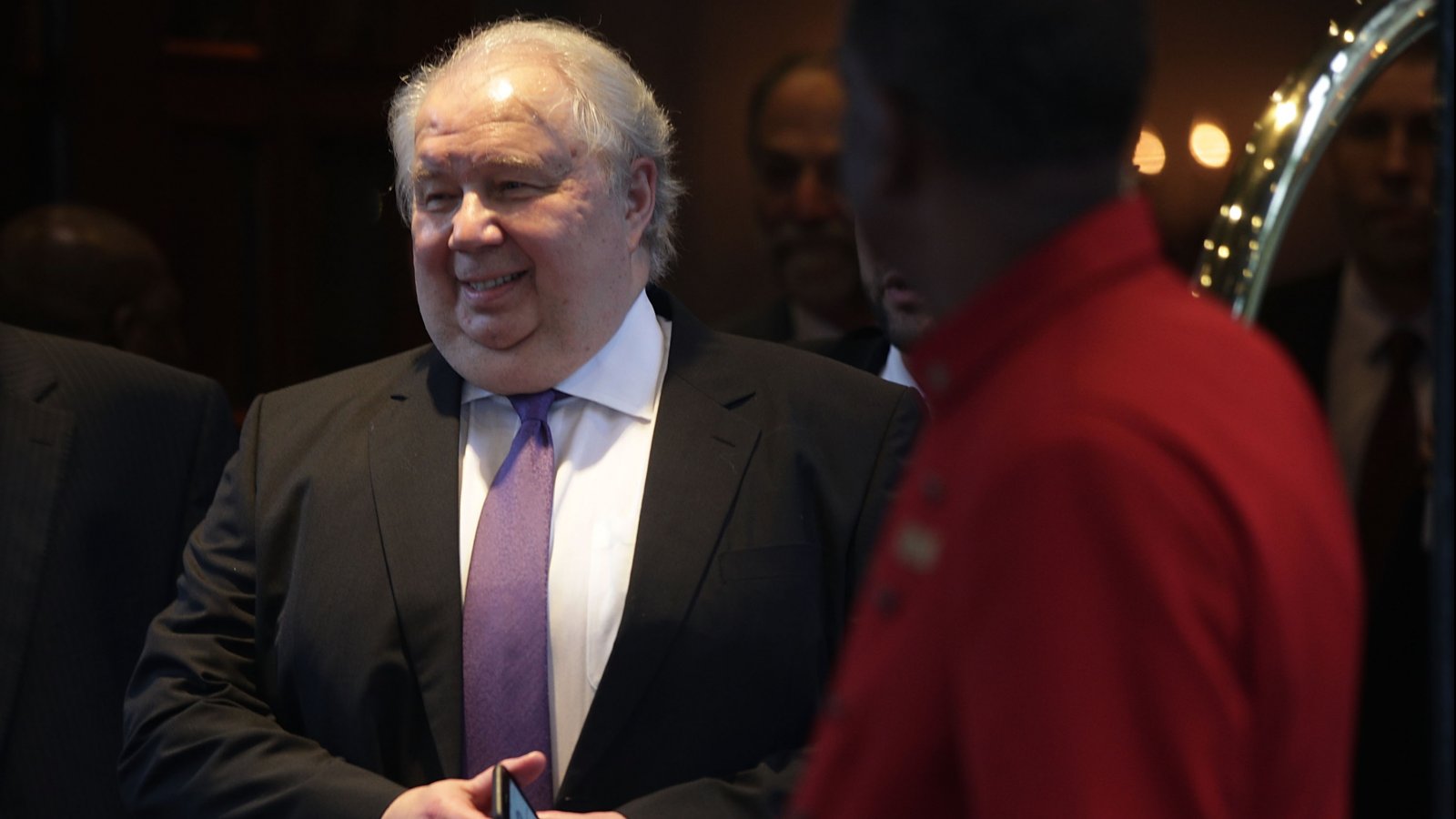
BuzzFeed News reports American bank examiners have taken a closer look at Russian embassy-related financial transactions than previously disclosed, flagging two concerning former Russian Ambassador to the U.S. Sergey Kislyak as suspicious.
The first, made just 10 days after the US presidential election in 2016, was a $120,000 lump-sum check to then-ambassador Sergey Kislyak that was twice as large as any payment he’d received in the previous two years.
The second, just five days after President Donald Trump’s inauguration, was a blocked attempt to withdraw $150,000 in cash that a bank official feared was meant for Russians the US had just expelled from the country.
(...)
Last November, BuzzFeed News began revealing suspicious embassy transactions, including a $29,000 wire transfer to the embassy's US bank account to “finance election campaign of 2016”; $325,000 in payments to the Russian Cultural Centre in Washington; and $2.4 million paid to small home-improvement companies controlled by a Russian immigrant living in Virginia.
(...)
In mid-2017, as US law enforcement stepped up its investigation of Russian interference, agents turned for help to Citibank, where the embassy was a customer. As bankers trawled through the embassy’s account and those of its diplomats, they hit upon a payment to Kislyak they found suspicious.
Ten days after the election, the embassy cut a check to the former ambassador for $120,000. The check was marked “payroll.” Kislyak deposited the money in his Citibank checking account, then wired the funds to his account in Russia in two $60,000 installments.
(...)
Now, new documents show that the $120,000 payment, purportedly his 2016 salary in a lump sum, was more than twice as large as any the embassy had given Kislyak in the past two years. In 2014, the embassy provided Kislyak a payment of $53,538, and in 2015 it gave him $50,000 ...
When bank officials asked about the much larger $120,000 lump-sum payment in November 2016, neither the embassy nor Kislyak responded, the documents show.
Kislyak is central to several tentacles of Special Counsel Robert Mueller's Russia investigation because of his multiple contacts – some undisclosed – with Trump associates.
After failing to disclose during his confirmation hearings a meeting with Kislyak, Attorney General Jeff Sessions recused himself from the Russia investigation. Jared Kushner, the president’s son-in-law, discussed with Kislyak setting up a line of communication at the Russian Embassy. And Michael Flynn, the former national security adviser, pleaded guilty last year to lying to the FBI about multiple calls to Kislyak during the transition.
(...)
Citibank sent information that it compiled about Kislyak’s and the embassy’s accounts to the US Treasury Department’s financial crimes unit and the FBI in early 2017. As part of the bank’s review, Citibank officials focused on the embassy account used for day-to-day operations such as paying utilities and office expenses.
(...)
On Jan. 25, 2017, less than a week after Trump was sworn in, a Citibank relationship manager was visiting the diplomatic compound for an annual check-in when embassy officials asked to withdraw $150,000 cash. In the past, the embassy had withdrawn about $30,000 in cash each month. Now it was asking to take out five times that amount.
The money, embassy officials told the Citibank manager, was going to be used to pay the salaries of employees who had been transferred out of America in December 2016.
The bank officer was suspicious, because President Obama had recently expelled 35 Russian intelligence operatives in response to interference in the 2016 election. So the Citibank manager pressed the Russians for more information, documents show, asking for the names of the people who would be receiving the $150,000 and why they needed cash in America, given that the workers had already returned to Russia. Embassy officials never responded.
At the meeting, the Citibank account manager verbally rejected the request. The bank made several follow-up queries to learn more about how the embassy intended to spend the cash, according to the documents, but the embassy did not respond. In February 2017, the Russian Embassy pulled the withdrawal request, telling Citibank the matter had been “solved in Russia.”
"Suspicious" Transactions At Russian Embassy Sparked Deeper Bank Probe Than Previously Known (BuzzFeed News)
Investigators Are Scrutinizing Newly Uncovered Payments By The Russian Embassy (BuzzFeed News)